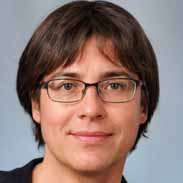We The People Chapter 1 Questions – Flashcards
Unlock all answers in this set
Unlock answersquestion
d. government.
answer
The institutions and procedures through which a territory and its people are ruled are called its a. economy. b. legislature. c. politics. d. government.
question
c. liberty, equality, and democracy.
answer
The core political values of the United States are a. liberty and responsibility. b. liberty, equality, and minority rights. c. liberty, equality, and democracy. d. liberty, democracy, and capitalism.
question
b. been suspicious of strong government.
answer
Throughout U.S. history, Americans have a. supported strong government. b. been suspicious of strong government. c. moved from suspicion of government to enthusiastic support for government. d. moved from a belief in no government to a belief in strong government.
question
c. taking American Government 101
answer
In which of the following activities will a typical college student feel the presence of their state government? a. studying in the library b. reading the nutrition label on a box of cereal c. taking American Government 101 d. surfing the Internet
question
b. anyone who was knowledgeable of and actively participated in government.
answer
According to the ancient Greeks, a citizen was a. any free male who was at least 18 years old. b. anyone who was knowledgeable of and actively participated in government. c. anyone born of Greek parents. d. anyone who votes.
question
b. because they understand how politics affects their lives
answer
According to your textbook, why are knowledgeable citizens more engaged in politics? a. because they read the newspaper b. because they understand how politics affects their lives c. because they enjoy working for political campaigns d. none of the above
question
d. totalitarian.
answer
A system of rule in which the government seeks to impose its will by suppressing any and all other groups and individuals in society that might pose a challenge to its power is called a. direct democracy. b. autocratic. c. oligarchic. d. totalitarian.
question
c. limitations on government power.
answer
The bourgeoisie championed a. democracy. b. "taxation without representation." c. limitations on government power. d. societal revolution.
question
c. turn institutions—especially parliaments—into instruments of real political participation for the middle class.
answer
The bourgeoisie in Europe sought to a. open up political participation to all social classes. b. restore the divine right of kings. c. turn institutions—especially parliaments—into instruments of real political participation for the middle class. d. overthrow parliaments.
question
b. who gets what, when, and how.
answer
The famous political scientist Harold Lasswell defined politics as the struggle over a. who gets elected. b. who gets what, when, and how. c. who protests. d. who gets to vote.
question
b. representative democracy.
answer
A student council is an example of a. direct democracy. b. representative democracy. c. limited democracy. d. an oligarchy.
question
c. direct democracy.
answer
Some states allow ballot referenda or popular initiatives, which are forms of a. representative democracy. b. totalitarianism. c. direct democracy. d. monarchy.
question
d. The number of elderly Americans has grown, and the number of children eighteen and under has declined.
answer
Which of the following statements describes America's growing population since its founding? a. More Americans trace their roots to Europe today than ever before. b. African Americans now make up a much smaller percentage of the total population. c. The percentage of the American population that identifies as Protestants has been on the rise. d. The number of elderly Americans has grown, and the number of children eighteen and under has declined.
question
c. belief in individual liberty
answer
Which of the following is a key part of American political culture? a. belief in equality of results b. belief in limiting opportunity c. belief in individual liberty d. belief in economic equality
question
c. personal and economic freedom.
answer
The U.S. definition of liberty refers to a. personal freedom only. b. economic liberty only. c. personal and economic freedom. d. political and religious freedom.
question
c. government regulation.
answer
Laissez-faire capitalism has been limited by a. public opinion, which opposes capitalism. b. voluntary actions by big businesses. c. government regulation. d. papal encyclicals.
question
a. the proper scope of government.
answer
Many of the conflicts in American politics today revolve around a. the proper scope of government. b. whether government should exist at all. c. allowing minorities to participate in government. d. consolidating the three branches of the military into one.
question
c. "one person, one vote."
answer
The principle of political equality can be best summed up as a. "equality of results." b. "equality of opportunity." c. "one person, one vote." d. "equality between the sexes."
question
c. the people.
answer
In a democracy, sovereignty is vested in a. the president. b. the federal government. c. the people. d. Congress.
question
b. complete freedom
answer
Which of the following is NOT a principle of our democracy? a. majority rule b. complete freedom c. minority rights d. equality of opportunity
question
d. representatives.
answer
In an indirect democracy, public policies are determined by a. consensus. b. oligarchs. c. religious figures. d. representatives.
question
b. natural law.
answer
Popular Sovereignty has its roots in a. monarchism. b. natural law. c. elitism. d. ecumenicalism.



